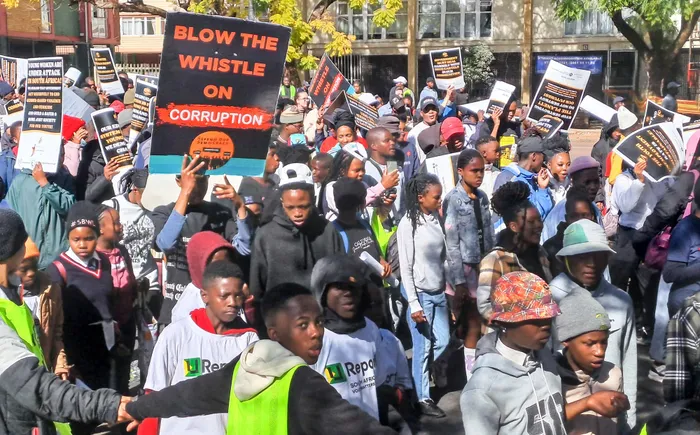Young people must get involved in politics to transform lives, not to escape poverty

Throughout history, young people have been central to the fight for freedom.
Image: File
In every generation, a call emerges — a call to rise, to challenge the status quo, and to build a better future. Today, that call is louder than ever, and it is directed squarely at the youth.
But as we respond, we must ask ourselves: Why are we stepping into politics? Is it simply a way to escape poverty, or is it a path to creating real, lasting change for everyone? Politics should never be reduced to a shortcut to personal enrichment. It must not become a tool for survival or personal gain. It should be viewed as a powerful platform to uplift communities, restore dignity, and build a future founded on justice and fairness. When young people enter political spaces, their motivation should be driven by a sense of purpose, not desperation.
Across many developing countries, and especially here in South Africa, young people face serious challenges. High unemployment, poor education, inequality, and exclusion from decision-making are part of daily life. It’s no surprise that politics often appears to be a fast-track to influence, wealth, and power. But when personal advancement becomes the primary motivation, the purpose is lost. What follows is more corruption, more gatekeeping, and more disappointment. We must remind ourselves why we began this journey.
It is not just for us. It is about building something greater. We enter politics to drive forward a vision — one that is rooted in service, community, and collective progress. We want to change the system so that our people no longer suffer. The revolution we speak of is one of responsibility, not rewards.Throughout history, young people have been central to the fight for freedom. From anti-colonial struggles across Africa to civil rights movements around the world, it was the youth who marched, who organised, and who led the charge.
They did so not for positions or perks, but because they could not accept injustice. That same spirit is needed today.The problem is that politics today often rewards the wrong things. In many cases, political systems are controlled by entrenched elites. They use patronage to secure loyalty and maintain power. They offer young people temporary benefits in exchange for silence and obedience. In such an environment, it is easy to lose focus.
But if we allow ourselves to be used by this system, if we see politics only as a way out of our own struggle, then we are contributing to the very oppression we claim to oppose. We must redefine what politics means. It should not be a competition for status, but a commitment to serve. We need young leaders who are rooted in the community — people who know the struggles of ordinary South Africans, who have lived them, and who are prepared to lead with humility and vision. True leadership is not about titles. It is about impact. It is found in those who organise food drives, advocate for better schools, support healthcare access, and inspire others to act. We must move away from the idea that change happens only in Parliament. Change begins on the ground, in neighbourhoods, at youth meetings, and in moments of everyday solidarity.
To achieve this, we need to invest in political education. Too often, young people are brought into politics for numbers, not leadership. They are mobilised for campaigns and rallies, but rarely given the tools to lead. That must change. Our youth must be equipped with knowledge about their rights, responsibilities, and the kind of leadership our country truly needs.
We must also be ready to make hard choices. If a political party or leader promises us personal gain while ignoring injustice or exploiting the poor, we must walk away. Our loyalty must be to the people, not to those who seek power without principle. Integrity must guide our actions, even when it costs us.Now is the time to rebuild a culture of activism. One that is grounded in justice, compassion, and sacrifice. Let us focus on community service rather than lavish political events. Let us push for real reforms instead of chasing empty promises.
Let us be present where it matters — in schools, clinics, and community forums — not just in campaign photos or speeches. Young people must enter politics not to escape poverty, but to end it for everyone. We must ask ourselves: do we want a country where a few succeed while many are left behind, or a country where we rise together, ensuring no one is forgotten? This movement is not about individual success. It is about collective liberation. The revolution is not a performance — it is a daily commitment to serving, resisting selfishness, and leading with vision.
We are not here to be seen. We are here to serve. We are not here to run from the struggle. We are here to end it. The future does not simply arrive. It is built. And it begins with young people choosing to lead with values, not ambition.
*Mayalo is an independent writer. The views expressed are not necessarily those of IOL or Independent Media